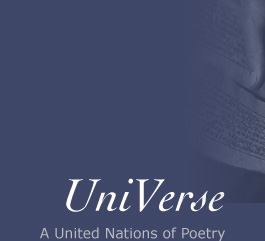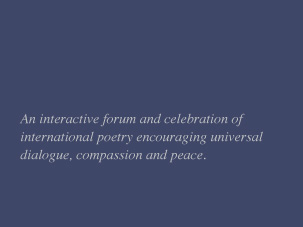| |
 |
 |
 |
Meghan O'Rourke is the author of Halflife (W.W. Norton), a finalist for the 2008 Patterson Poetry Prize. Her poems have appeared in The New Yorker, The New Republic, Poetry, The Kenyon Review, Best American Poetry, and other venues. She writes reviews and essays for publications including The New York Times Book Review, The Nation, and Slate, where she is also literary editor. She is a poetry editor at The Paris Review, and was the recipient of the 2005 Union League Civic and Arts Foundation Award for poetry, as well as a Pushcart Prize. She lives in Brooklyn, New York, where she grew up.
|
 |
 |
English version
Hunt
The light of the mind is red. It is a red street,
it never ends, it must be kept to
like a schedule. When it is fine, it is fine,
and the night’s hounds flinch from it.
Foxes run under dark cover of leaves;
the glacier, trapping everything unused, melts.
Everything natural to us must be learned.
The broken laugh, the branching glance,
the wood beneath the green, embarking skin.
The light of the mind is red. It is a red street,
and a cold home stands at its darkening end,
toward which foxes run through clicking leaves. |
 |
 |
English
version
Meditations on a Moth
How splendid yellow is. –Vincent Van Gogh
My poor eye. It has done
so much looking—at the sky, at the dark-fretted
trumpets in the frescoes of the Chrysler Building,
at the opium dens of “High and Low,”
where bodies sway like white flowers—
amount due, amount due.
Is the blue the blue you think of when I tell you?
Do ghosts have neuroses?
What is the point of the haunting they do?
Here—look. No, look.
I am trying to rid myself of myself;
to see past the tumbling clouds.
All evening drums rumble in the corner park.
The mobsters convene when the cops leave.
What goes down stays down,
the street at three AM a fantastic absence of color.
Outside the studio window
a river slides along its dulcimer bed,
aquifers and accordions and Alcatraz.
But you have to get up in the morning.
The brute blind glare of snow in sun.
Look again, and up you may rise
to something quite surprising in the distance. |
 |
 |
English
version
Sleep
Pawnbroker, scavenger, cheapskate,
come creeping from your pigeon-filled backrooms,
past guns and clocks and locks and cages,
past pockets emptied and coins picked from the floor;
come sweeping with the rainclouds down the river
through the brokenblack windows of factories
to avenues where movies whisk through basement projectors
and children peel up into the supplejack twilight
like licorice from sticky floors—
there a black-eyed straight-backed drag queen
preens, fusses, fixes her hair in a shop window on Prince,
a young businessman jingles his change
and does his Travis Bickle for a long-faced friend,
there on the corner I laughed at a joke Jim made.
In the bedroom the moon is a dented spoon,
cold, getting colder, so hurry sleep,
come creep into bed, let’s get it over with;
lay me down and close my eyes
and tell me whip, tell me winnow
tell me sweet tell me skittish
tell me No tell me no such thing
tell me straw into gold tell me crept into fire
tell me lost all my money tell me hoarded, verboten,
but promise tomorrow I will be profligate,
stepping into the sun like a trophy. |
 |
 |
English
version
Inventing a Horse
Inventing a horse is not easy.
One must not only think of the horse.
One must dig fence posts around him.
One must include a place where horses like to live;
or do when they live with humans like you.
Slowly, you must walk him in the cold;
feed him bran mash, apples;
accustom him to the harness;
holding in mind even when you are tired
harnesses and tack cloths and saddle oil
to keep the saddle clean as a face in the sun;
one must imagine teaching him to run
among the knuckles of tree roots,
not to be skittish at first sight of timber wolves,
and not to grow thin in the city,
where at some point you will have to live;
and one must imagine the absence of money.
Most of all, though: the living weight,
the sound of his feet on the needles,
and, since he is heavy, and real,
and sometimes tired after a run
down the river with a light whip at his side,
one must imagine love
in the mind that does not know love,
an animal mind, a love that does not depend
on your image of it,
your understanding of it;
indifferent to all that it lacks:
a muzzle and two black eyes
looking the day away, a field empty
of everything but witch-grass, fluent trees,
and some piles of hay. |
 |
 |
|
 |
|





